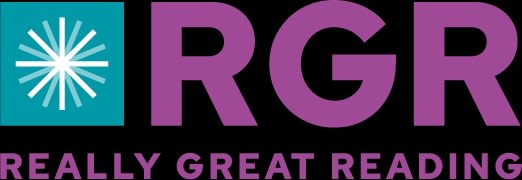Literacy is a potentially powerful tool for unlocking the possibilities of critical thinking and engaging in political action against institutions and systems fashioned to promote and sustain inequities, but systemic inequities could be harming students, according to several panelists during a recent discussion at the International Literacy Association Convention in Orlando, FL.
A July 17 panel on how literacy can promote social change followed the context of a presentation by Cornelius Minor, a lead staff developer at the Teachers College Reading and Writing Project, who spoke of police shootings and the violence that biased systems and inequities could enact on students.
“These things are not personality traits; they are systems. They are rules, practices, sensibilities that lead to unequal outcomes for specific subsets of people; women, people of color, gay people, poor people and people with disabilities,” he said. “I am interested in disrupting systems. Like the police, teachers, despite our personal interests, are the public face of a system that ensures that some people get less.”
Professional development matters
The panel was moderated by The New York Times' Nikole Hannah-Jones, who, in a keynote delivered before the panel discussion, spoke about how segregation and racial disparities are apparent in schools, districts and in literacy education.
Deborah Desile, the CEO of ACSD and a former Assistant Secretary of Elementary and Secondary Education to former President Barack Obama, noted that it was important to consider more robust investment in early childhood education to avoid learning gaps later in a student’s education, along with opportunities for teaching training and development. She said teachers need to learn to interact with students and other teachers, both for interactions with students and with other educators. An educator prepared to critically converse might be willing to step into a classroom, she said, and question the books that were used, the novels featured, and what type of dialogue could be encouraged within the environment.
There are professional development programs available, including tests online, that educators can utilize to check for implicit bias, according to Monita K. Bell, the senior editor for Teaching Tolerance. Though it would not necessarily solve the systemic bias issues alone, Bell said self-reflection and acknowledgement of how those prejudices might manifest could be a first step towards working to mitigate their harmful effects. She also stressed the need for honesty in the classroom on the part of educators.
“If you're going to be in a situation where you’re trying to gain the trust of students, and have them be real with you, I think you have to be real with them," she said. "You can’t surgarcoat what they’re seeing and what they’re experiencing. You have to let them acknowledge it and let them express it, and let them talk about it."
Minor cautioned people to be wary of easy solutions to solving the systematic lack of trust between student of color and a white educator, arguing that there are different ways to try to earn a student’s confidence, but he found it always returning to time spent with that student.
“I love how we keep coming back to this idea, as fractured as it may be, a United States of America, and that if I want to earn the trust of a potential partner, if I want to earn the trust of a neighbor, I invest time,” he said. “There’s no program I can buy, there is no consultant that I can pay, but I can invest time.”
How can schools and districts respond?
On the school level, Minor again stressed the need to invest time in students, speaking about his experience in a school where they made the decision to pinpoint the students who were consistently not reading well, and devote three extra hours a week into those students.
“It’s that simple act of saying, ‘I’m recognizing that this system I have built allows certain kids to not perform, so how do I disrupt that system? I invest extra,’” he said. “And certain kids need more, that idea that being fair is not being equal. If you need three hours more to do what you need to do, I’ve got to make it my business in this institution to give you those three hours more.”
Though many of the challenges often seemed intractable, Ebony Elizabeth Thomas, an assistant professor in the Literacy, Culture, and International Education Division at the University of Pennsylvania’s Graduate School of Education, noted that there were successful educators and students working and learning in vulnerable schools and districts throughout the country. She said it was not a sufficient answer that positive practices could not be applied to scale.
“We are at the cusp with some great decisions as a nation. We know what to do, we know how to education urban children. We know how to educate children from non-dominant backgrounds,” she said. “It’s not just money, it’s about will. What kind of nation will we be in the 21st century? We get to decide; we don’t have much longer to do so.”


















